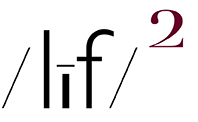Highland Park Diner ~ Rochester, NY (embiggenable) • µ4/3
There is a Leica loving picture maker out there who believes that photography has gone to hell in a handbasket. That belief stems from the fact that so many digital era picture makers have eschewed the making of "straight" pictures - that is, pictures which represent the real world exactly as the camera's eye-guided by the picture maker's vision-saw and pictured it, without any of that digital monkey business.
Now it is certainly true that photo-sharing sites-Instagram and the like-are saturated with non-straight pictures ranging from Color / Saturation / Contrast manipulated "interpretations" of the real world to outright fanciful dreamscapes straight from the image maker's imagination. The aforementioned Leica Lover seems to think that this is a new thing, picture making wise. However, considering manipulated images-which I would not necessarily call photographs-to be a new thing ignores the fact that that practice extends back to almost the very beginning of the medium and its apparatus.
The Pictorialism movement were the first group practioners of manipulating the light-sensitive materials to come out of the camera and that practice has never stopped. In the pre-digitial analog era, one magnificant example of that practice was Jerry Uelsmann. Uelsmann's moto could have easily been, "I don't need no stinkin' Photoshop.
So, even though I might agree with Leica Lover that the distinguishing characteristic of the medium of photography and its apparatus that separates it from other visual arts is its intrinsic and inexorable (albeit seemingly infinitely flexible) relationship with the "real", I believe that it is both very mistaken and misleading to think that the practice of manipulating the product that comes out of a camera as new practice. Nor, despite its seeming prevalence, to be deningrating or destroying the practice of Straight picture making.
What I am most interested in, re: the escape from the "real" so prevalent in picture making today, is what that says about the picture makers themselves and the culture in which they live. Maybe I'll have a few thoughts on that subject .....
